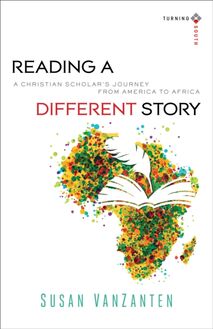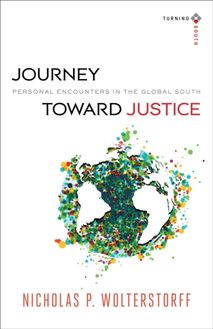-
 Univers
Univers
-
 Ebooks
Ebooks
-
 Livres audio
Livres audio
-
 Presse
Presse
-
 Podcasts
Podcasts
-
 BD
BD
-
 Documents
Documents
-
- Cours
- Révisions
- Ressources pédagogiques
- Sciences de l’éducation
- Manuels scolaires
- Langues
- Travaux de classe
- Annales de BEP
- Etudes supérieures
- Maternelle et primaire
- Fiches de lecture
- Orientation scolaire
- Méthodologie
- Corrigés de devoir
- Annales d’examens et concours
- Annales du bac
- Annales du brevet
- Rapports de stage
La lecture à portée de main
Vous pourrez modifier la taille du texte de cet ouvrage
Découvre YouScribe en t'inscrivant gratuitement
Je m'inscrisReading a Different Story (Turning South: Christian Scholars in an Age of World Christianity) , livre ebook
Découvre YouScribe en t'inscrivant gratuitement
Je m'inscrisEn savoir plus
Vous pourrez modifier la taille du texte de cet ouvrage
En savoir plus

Description
Sujets
Informations
| Publié par | Baker Publishing Group |
| Date de parution | 21 janvier 2014 |
| Nombre de lectures | 0 |
| EAN13 | 9781441245731 |
| Langue | English |
Informations légales : prix de location à la page 0,0576€. Cette information est donnée uniquement à titre indicatif conformément à la législation en vigueur.
Extrait
Joel Carpenter, series editor
T he Turning South: Christian Scholars in an Age of World Christianity series offers reflections by eminent Christian scholars who have turned their attention and commitments toward the global South and East. In order to inspire and move the rising generation of Christian scholars in the Northern Hemisphere to engage the thought world and issues of the global South more vigorously, the series books highlight such reorientations and ask what the implications of “turning South” are for Christian thought and creativity in a variety of cultural fields.
Also available in the series
Journey toward Justice: Personal Encounters in the Global South
Nicholas P. Wolterstorff
I have spoken of your faithfulness.
—Psalm 40:10 (NRSV)
I cannot become myself without another.
—Mikhail Bakhtin
People are people through other people.
—African proverb
© 2013 by Susan VanZanten
Published by Baker Academic
a division of Baker Publishing Group
P.O. Box 6287, Grand Rapids, MI 49516-6287
www . bakeracademic . com
Ebook edition created 2014
All rights reserved. No part of this publication may be reproduced, stored in a retrieval system, or transmitted in any form or by any means—for example, electronic, photocopy, recording—without the prior written permission of the publisher. The only exception is brief quotations in printed reviews.
Library of Congress Cataloging-in-Publication Data is on file at the Library of Congress, Washington, DC.
ISBN 978-1-4412-4573-1
Unless indicated otherwise, Scripture quotations are from the Holy Bible, New International Version®. NIV®. Copyright © 1973, 1978, 1984, 2011 by Biblica, Inc.™ Used by permission of Zondervan. All rights reserved worldwide. www.zondervan.com
Scripture quotations labeled NRSV are from the New Revised Standard Version of the Bible, copyright © 1989, by the Division of Christian Education of the National Council of the Churches of Christ in the United States of America. Used by permission. All rights reserved.
Scripture quotations labeled KJV are from the King James Version of the Bible.
Contents
Cover i
Series Page ii
Epigraph iii
Title Page iv
Copyright Page v
Series Preface vii
Series Editor’s Foreword ix
1. Loomings: 1955–78 1
2. Going Aboard: 1978–86 27
3. The Advocate: 1986–93 53
4. The Pacific: 1993–2000 81
5. The Monkey-Rope: 2000– 105
6. Epilogue 127
Index 131
Notes 135
Back Cover 139
Series Preface
N early forty years ago, the Scottish church historian Andrew F. Walls predicted that Africa would become the new Christian heartland and that other regions to the global South and East would become the new main places in the world for Christian practice and thought. Few of Walls’s colleagues paid him any attention then, but today we see how prophetic he was. The “coming of global Christianity,” as historian Philip Jenkins put it, is gaining broad interest and attention, and its signs are quite evident. Africans have recently led the World Council of Churches and several of the Protestant world communions. The South African Nobel laureate Desmond Tutu is arguably the world’s most prominent public theologian. China and Brazil are now closing in on the United States as having the world’s largest national populations of Protestant Christians. And not only has the balance of Christianity’s place in the world tipped markedly toward the global South and East, but so has public and scholarly consciousness of it.
This global shift in Christianity’s demography, vitality, and influence has caught most Christian scholars in the North Atlantic region by surprise. Their orientation and sense of mandate has been toward the problems of the increasingly post-Christian West, and their preparation for dealing with these issues has been framed within the European “Christian humanist” tradition. C. S. Lewis, Abraham Kuyper, and Dorothy Sayers are their patron saints, and one of their prime mandates has been to try to take back intellectual territory from the “cultured despisers of religion.” Christian scholarly guilds, colleges, and universities are deeply oriented in this direction. Their strategies and preoccupations were forged on the anvils of European Christendom. As a result, says Walls, there is a major mismatch between Christian vigor and engagement in frontline mission and Christian resources for producing scholarly work. Christian scholarship needs a major reorientation.
Walls took that idea to heart, and he set to work rewriting the church history syllabus. It needed to reflect the implications of the gospel’s traveling south and east from Jerusalem as well as to the north and west. There are others too who have been reorienting their personal and scholarly callings, and the purpose of this series is to give several Christian thought leaders the opportunity to share what they have been learning. May these reflections be powerfully instructive, so that many of you who read and ponder them will turn your hearts, minds, and vocations in this new direction.
Series Editor’s Foreword
J OEL C ARPENTER
S usan VanZanten, who first earned her license as a literary scholar with a dissertation on Moby - Dick , says that turning to the global South and to African literature was itself a great voyage, taking her, like the whalers, from New England to South Africa and beyond. In this delightful memoir, Susan leads us from her childhood home in a small Dutch American Calvinist community through college and graduate school years and on into a long and fruitful career of teaching and learning in Christian liberal arts colleges.
Frequently we see Susan’s dissatisfaction with the way that things are in these settings, but this is no typical narrative of self-discovery and artistic liberation. Rather, like the whalers on the hunt, she says, she was being driven in unexpected directions by winds that, as she looks back, were surprisingly providential. For example, Susan says that she became a feminist because of those “whip-smart, academically hungry, socially confused women students” who looked to her for guidance as the only woman professor at her first teaching post. And she first turned to South African literature, she says, because her college required students to get some exposure outside of the Euro-American West—and somebody had to help them do it. So the small-college burden of teaching beyond one’s expertise providentially turned Susan’s curiosity toward the global South. And given her Dutch Reformed upbringing and grad-school sojourn in the American South and Southern literature, she had some providentially planted sensibilities for understanding the uniquely South African imagination, so deeply marked by sin and suffering.
This is but the start of Susan’s intellectual and spiritual journey. She also discovers the roles of artistry and justice seeking in God’s grand purposes, how a worldwide range of literary study helps Christians fulfill the call to love their neighbors, and the religious blind spot in postcolonial theory. She shows too how American literature’s preoccupation with the individual needs the counterbalance of African literature’s testimony to the “power, compassion, and necessity” of communal relationships.
Susan reflects throughout on both the constraints and the opportunities of working within Christian academic communities. And in the end, she testifies that it is a worthy calling for young scholars who are disciples of Jesus Christ. But in an age of radical global interactivity, she insists, Christian learning needs to be aware of the ways in which a faith that is now firmly rooted in the global South tugs at us all. We need to refresh Christian scholarship in the global North, she says, and that renewal will come as we turn to the South. Especially for younger scholars exploring new intellectual pursuits, the possibilities entailed in making such a move are promising indeed. It is difficult for me to imagine a more compelling book than this one to call young Christian humanists to a life of reading, writing, thinking, and teaching.
1 Loomings
1955–78
I n the American epic Moby - Dick , the monomaniacal Captain Ahab and a ragtag crew sail the globe in pursuit of the elusive white whale, embarking from Nantucket, turning south at the Azores, skirting the Cape of Good Hope, and traversing the Indian Ocean to confront their adversary in the Japanese cruising grounds of the Pacific. Some thirty years ago, I wrote my dissertation about this grand pursuit, and in the following decades, I unexpectedly found myself taking a similar journey, launching from New England and landing in South Africa, undertaking an intellectual voyage during which, like Melville’s Ishmael, “I have swum through oceans and sailed through libraries,” as well as soared through air and searched through archives.
Although my graduate training in the late 1970s was in classic nineteenth-century American literature (Hawthorne, Melville, Dickinson), for much of my professional life, my research has focused on African literature. My scholarly turn to the south was steered by a providential conjunction of personal circumstances, academic winds, and world events. One small opening led to an insignificant decision, which led to another opportunity, and so on. I’ve never operated with a five-year plan; rather, I’ve tried to be faithful to the opportunities and passions God has given me, the blue skies and my internal compass, and such attempts at faithfulness have taken me in unanticipated and sometimes ironic directions. My journey, like all journeys, was shaped by the cultural currents of its time.
In today’s academic world, postcolonial literature programs include African texts; graduate students can specialize in numerous authors, areas, or genres of African literature; and monographs and essays on African literary topics are published by university presses and scholarly journals every year. But in 1982, when I finished my PhD a
-
 Univers
Univers
-
 Ebooks
Ebooks
-
 Livres audio
Livres audio
-
 Presse
Presse
-
 Podcasts
Podcasts
-
 BD
BD
-
 Documents
Documents
-
Jeunesse
-
Littérature
-
Ressources professionnelles
-
Santé et bien-être
-
Savoirs
-
Education
-
Loisirs et hobbies
-
Art, musique et cinéma
-
Actualité et débat de société
-
Jeunesse
-
Littérature
-
Ressources professionnelles
-
Santé et bien-être
-
Savoirs
-
Education
-
Loisirs et hobbies
-
Art, musique et cinéma
-
Actualité et débat de société
-
Actualités
-
Lifestyle
-
Presse jeunesse
-
Presse professionnelle
-
Pratique
-
Presse sportive
-
Presse internationale
-
Culture & Médias
-
Action et Aventures
-
Science-fiction et Fantasy
-
Société
-
Jeunesse
-
Littérature
-
Ressources professionnelles
-
Santé et bien-être
-
Savoirs
-
Education
-
Loisirs et hobbies
-
Art, musique et cinéma
-
Actualité et débat de société
- Cours
- Révisions
- Ressources pédagogiques
- Sciences de l’éducation
- Manuels scolaires
- Langues
- Travaux de classe
- Annales de BEP
- Etudes supérieures
- Maternelle et primaire
- Fiches de lecture
- Orientation scolaire
- Méthodologie
- Corrigés de devoir
- Annales d’examens et concours
- Annales du bac
- Annales du brevet
- Rapports de stage








